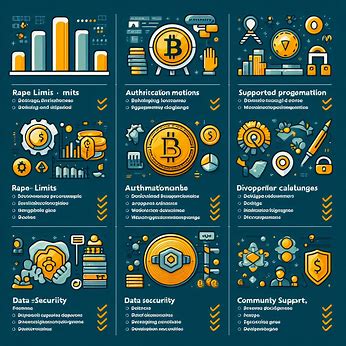Exchanges are locations where you buy or sell a cryptocurrency. The majority are centralized and operate on the same business model as traditional institutions. However, over the last few years, decentralized exchanges (DEXs) have emerged to challenge existing centralized exchanges (CEXs).
In this post, we will look at decentralized exchanges (DEXs) versus centralized exchanges (CEXs), and explore the pros and cons of each. We will also show you some real-world examples and help you decide which type of exchange might be right for you.
Jump To
ToggleWhat are Centralized Exchanges (CEXs)?
Centralized exchanges are usually what most people think of when they hear the word “exchange.” It is a cryptocurrency exchange that runs in its own infrastructure. These are the big players in the crypto world, with household names like Coinbase, Binance, and Kraken.
How do CEXs work?
- You create an account on the exchange and verify your identity (usually through a process called KYC, or “know your customer”).
- You deposit funds into your account, either in the form of cryptocurrency or fiat currency (like USD or EUR).
- You can then buy and sell cryptocurrencies on the exchange, using the funds in your account.
- When you are ready to withdraw your funds, you can do so through the exchange (although there may be fees and restrictions depending on the exchange and your location).
Pros of CEXs
1. User-friendly
CEXs are generally easy to use, with intuitive interfaces and customer support.
2. Liquidity
Because CEXs have a large number of users and high trading volumes, it’s generally easy to buy and sell cryptocurrencies quickly and at a fair price.
3. Fiat on-ramps
Many CEXs allow you to buy cryptocurrencies with fiat currency, which can be convenient for newcomers to the space.
Cons of CEXs
1. Centralization
CEXs are centralized entities, which means they have control over your funds and personal information. This can be a security risk, as CEXs are often targeted by hackers.
2. Fees
CEXs often charge fees for trading, depositing, and withdrawing funds. These fees can add up quickly, especially if you’re a frequent trader.
3. Regulation
Because CEXs are centralized entities, they are subject to government regulation and oversight. This can be a good thing in terms of consumer protection, but it can also lead to restrictions and limitations on how you can use the exchange.
What are Decentralized Exchanges (DEXs)?
Decentralized exchanges are a newer type of exchange that operate on a blockchain network, rather than through a centralized entity. DEXs are often built on top of existing blockchain platforms like Ethereum or Binance Smart Chain.
How do DEXs work?
- You connect your cryptocurrency wallet to the DEX (usually through a browser extension or mobile app).
- You can then trade cryptocurrencies directly from your wallet, without having to deposit your funds into an exchange account.
- Trades are executed through smart contracts on the blockchain, which means there is no central authority controlling the exchange.
Pros of DEXs
1. Security
Because you retain control of your funds and private keys, DEXs are generally considered to be more secure than CEXs.
2. Privacy
DEXs do not require KYC verification, which means you can trade cryptocurrencies without having to share your personal information.
3. Decentralization
DEXs are decentralized by nature, which means there is no single point of failure or control.
Cons of DEXs
1. User experience
DEXs can be more difficult to use than CEXs, especially for newcomers. The interfaces can be confusing, and you may need to have a certain level of technical knowledge to use them effectively.
2. Liquidity
Because DEXs are newer and have lower trading volumes than CEXs, it can be more difficult to find buyers and sellers for certain cryptocurrencies.
3. Fees
While DEXs do not charge traditional trading fees, you may still need to pay transaction fees (known as “gas”) to execute trades on the blockchain.
Real-world examples of CEXs and DEXs
Popular CEXs include:
1. Coinbase
One of the most popular CEXs in the US, Coinbase is known for its user-friendly interface and wide range of supported cryptocurrencies.
2. Binance
Based in Malta, Binance is one of the largest CEXs in the world by trading volume, and offers a wide range of trading pairs and features.
3. Kraken
Another US-based CEX, Kraken is known for its security and compliance, and offers a range of fiat currency trading pairs.
Popular DEXs include:
1. Uniswap
Built on the Ethereum blockchain, Uniswap is one of the most popular DEXs in the world, known for its user-friendly interface and wide range of trading pairs.
2. PancakeSwap
Built on the Binance Smart Chain, PancakeSwap is a popular DEX that offers a range of trading pairs and yield farming opportunities.
3. SushiSwap
Another Ethereum-based DEX, SushiSwap is known for its community-driven governance and wide range of supported cryptocurrencies.
Choosing between a CEX and DEX
Choosing between a CEX and DEX depends on your individual needs and preferences as a trader.
If you are new to cryptocurrency trading, a CEX might be the best place to start. CEXs are generally more user-friendly and offer a wider range of fiat currency trading pairs, which can make it easier to get started. CEXs also offer more robust customer support and security features, which can be reassuring for newcomers.
However, if you are an experienced trader who values privacy and security, a DEX might be a better fit. DEXs offer greater control over your funds and do not require you to share personal information, which can be appealing for those who value their privacy. DEXs also offer a wider range of trading pairs and can be a good option for those looking to trade more obscure or niche cryptocurrencies.
Many traders use both CEXs and DEXs, depending on their needs at the time. For example, you might use a CEX to buy your initial cryptocurrency holdings with fiat currency, then transfer those holdings to a DEX for more advanced trading.
The Future of Cryptocurrency Exchanges
In the future, we can expect to see more hybrid exchanges that combine elements of both CEXs and DEXs, offering the best of both worlds in terms of user experience and security.
We may also see more decentralized finance (DeFi) protocols emerging that offer trading and other financial services in a completely decentralized manner. These protocols could potentially disrupt traditional financial institutions and change the way we think about money and value exchange.
Key Takeaways
- Centralized exchanges (CEXs) are operated by a central authority, while decentralized exchanges (DEXs) run on blockchain networks without a central point of control.
- CEXs offer user-friendly interfaces, high liquidity, and fiat currency trading pairs, but require users to trust the exchange with their funds and personal information.
- DEXs provide users with greater control over their funds and privacy, but may have lower liquidity and a more complex user experience compared to CEXs.
- Popular CEXs include Coinbase, Binance, and Kraken, while popular DEXs include Uniswap, PancakeSwap, and SushiSwap.
- The choice between a CEX and DEX depends on individual needs and preferences, such as trading experience, desired level of privacy, and the specific cryptocurrencies being traded.
- The future of cryptocurrency exchanges may involve more hybrid models and decentralized finance (DeFi) protocols that combine the benefits of both CEXs and DEXs.
FAQs
1. Can I trade fiat currencies on a DEX?
A: No, DEXs only support cryptocurrency trading pairs. If you want to trade fiat currencies for cryptocurrencies, you’ll need to use a CEX that offers fiat on-ramps.
2. Are DEXs more secure than CEXs?
A: In general, DEXs are considered more secure because users retain control of their funds and private keys. However, both CEXs and DEXs can be vulnerable to hacks and exploits, so practice good security habits regardless of which type of exchange you use.
3. Do I need to complete KYC verification to use a DEX?
A: No, most DEXs do not require users to complete KYC (know your customer) verification, as trades are conducted directly from user wallets without the need for an account on the exchange.
4. Can I use a hardware wallet with a CEX?
A: Yes, many CEXs support withdrawals to hardware wallets, which can provide an additional layer of security for your funds. However, when your funds are on the exchange, they are still controlled by the CEX and vulnerable to hacks or other security breaches.
5. Are there any hybrid exchanges that combine elements of CEXs and DEXs?
A: Yes, some exchanges, such as Nash and Qurrex, offer hybrid models that aim to provide the user experience and liquidity of a CEX with the security and privacy of a DEX. These exchanges are still relatively new and less widely used compared to pure CEXs or DEXs.
6. What are the transaction fees like on DEXs compared to CEXs?
A: Transaction fees on DEXs are typically paid in the form of “gas” fees to the underlying blockchain network, such as Ethereum. These fees can be higher than the trading fees on CEXs, especially during periods of high network congestion. However, some DEXs are built on more scalable blockchain networks, like Binance Smart Chain, which can offer lower transaction fees.
7. Can I trade any cryptocurrency on a DEX?
A: DEXs typically support a wide range of trading pairs, including many niche and low-cap cryptocurrencies that may not be available on CEXs. However, the liquidity for these lesser-known cryptocurrencies may be lower on DEXs compared to more established cryptocurrencies like Bitcoin and Ethereum.








